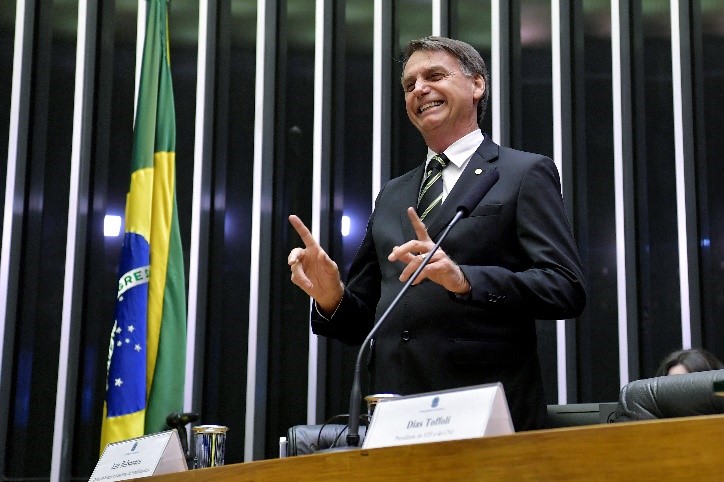 By Stefano Gruber De Oliveira, '20
By Stefano Gruber De Oliveira, '20
Just over two weeks ago, Brazil elected its 38th President, Jair Bolsonaro, a former army captain who has spent 27 years as a Congressman from Rio de Janeiro. He defeated Fernando Haddad, the PT (Worker’s Party) candidate and protégé of former President Lula, now behind bars. To anyone who was carefully observing this election, this outcome appeared all but inevitable given Bolsonaro’s strength in the polls and his result during the first round of voting. However, no matter how assured his victory was, many viewed it as part of a global shift, one which suggests that the liberal world order created 70 years ago is beginning to crumble. And for the most part, trends seem to suggest they are right.
Firstly, Bolsonaro represents a major upheaval in Latin America. Brazil is the most populous country on the continent by a large margin and has the eight-largest economy in the world, about 4 times larger than Argentina, Latin America’s second-largest economy. Overall, Brazil commands a huge amount of influence on the continent and in the world. For example, it helps coordinate global economic development as a member of BRICS, a multi-lateral organization of Brazil, Russia, India, China and South Africa, all emerging economies. It is also a key pillar to Mercosur whose goal is fostering economic integration and democratic governance in South America.Bolsonaro’s desire to establish friendlier relations with Trump’s administration could signal a significant increase in pressure on “rogue” countries in their neighborhood such as Venezuela, possibly even culminating in a limited military intervention. Increasing militarism would also provide opportunities to cut down on the trans-continental drug trade as well as undertaking a larger role in dictating the foreign policy direction of the continent.Secondly, and perhaps more notably, his domestic policies mirror what we can see manifesting in populist movements across the globe. While certain specifics are centered around domestic problems such as uncontrollable crime and an incredibly corrupt political class, the overarching themes are the same. Political factions in the Western world and beyond are demanding increasing security and protection of traditional structures and values, and they appear to be gaining ground. Once stable leaders such as Angela Merkel are slowly being ousted for not effectively countering right-wing pressure, while outsiders such as Trump are facing pressure for not delivering on enough of their more radical promises. Bolsonaro represents possibly the most radical leader to date elected in a major country due to radical political factions seeing him as their best chance to enact ground-breaking reforms.Finally, something should be said regarding the disillusionment people are having with democracy, especially in Brazil. Bolsonaro’s opinions of the military dictatorship would have been a disqualifying factor twenty, ten and even five years ago. But given the compounding effects of recessions, the rise of identity politics and an overall sense of misdirection in the Western world, it would seem voters are looking through rose-tinted glasses and desiring a return to a time of perceived order, even one with streaks of authoritarianism in Brazil’s case. This nostalgia is visible everywhere, from Trump’s key slogan to Brexit. Bolsonaro was a reaction to several serious problems including a stagnant economy, rampant corruption and stifling crime, which were seen by his supporters as the effects of a massive deviation from a traditional ideal. These problems have not manifested to the same degree in the United States and Western Europe, which is why Bolsonaro’s popularity came as a major shock to outside observers. But deviations have surely already happened there, and if countries across the western world spiral out of control, more testaments to the populist wave might be exactly what we get.Sources:https://www.theguardian.com/world/2018/nov/01/bolsonaro-and-the-rise-of-the-far-righthttps://www.washingtonpost.com/world/2018/11/05/trump-finds-like-minded-demagogue-bolsonaro/?noredirect=on&utm_term=.dbd2de8581e0https://www.theguardian.com/commentisfree/2018/oct/24/planet-populists-brazil-jair-bolsonaro-environmenthttps://www.vox.com/2018/10/31/18042510/bolsonaro-brazil-foreign-policy-venezuelahttp://www.itamaraty.gov.br/en/politica-externa/mecanismos-inter-regionais/7505-brics-brazil-russia-india-china-south-africahttps://www.cfr.org/backgrounder/mercosur-south-americas-fractious-trade-bloc